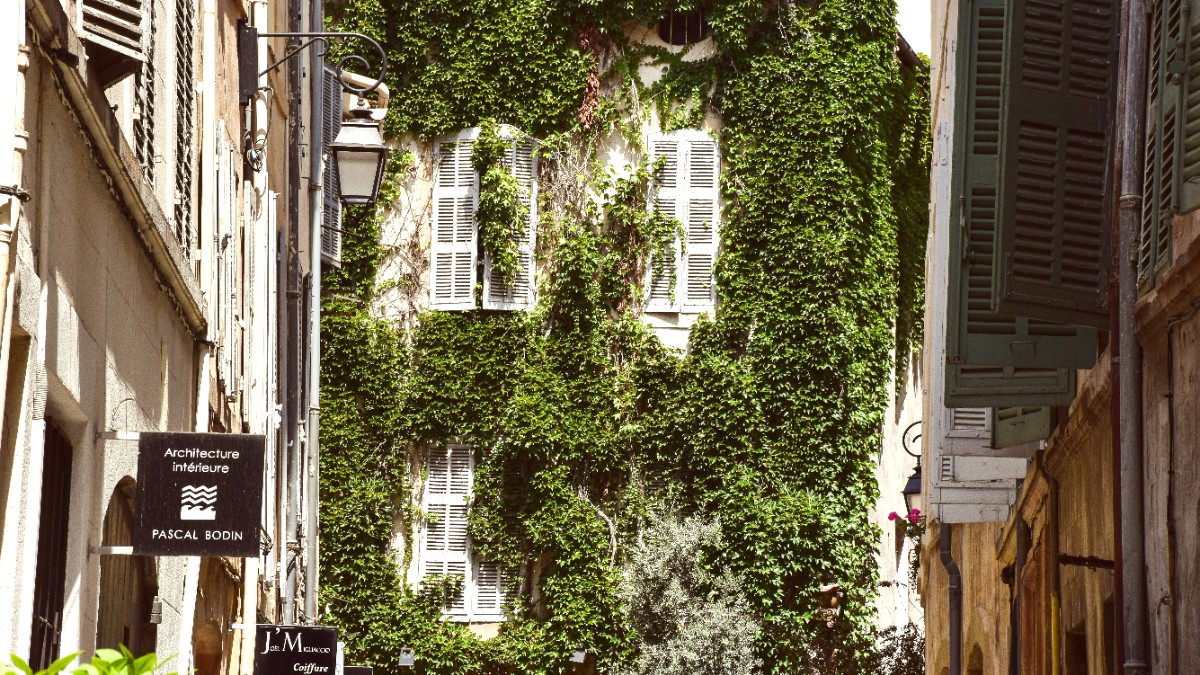
Provence, France
Provençal cuisine has deep Mediterranean roots, focusing on fresh, seasonal ingredients, aromatic herbs, and generous olive oil use.
The cooking style is rustic yet refined, enhancing natural flavors without heavy sauces.
Tomatoes, zucchini, eggplant, bell peppers, onions, aromatic herbs like thyme, rosemary, and basil are staples.
Olive oil is the main cooking fat. Garlic, olives, and anchovies appear frequently in many dishes.
Flavors are typically robust, aromatic, and sun-kissed, reflecting the region's warm climate and fresh bounty.
Creamy garlic mayonnaise served with boiled vegetables, cod, and hard-boiled eggs. A Provençal staple.
A Traditional aïoli recipe book can offer more insights into this dish.
A stewed vegetable dish featuring eggplant, zucchini, bell peppers, tomatoes, onions, and garlic cooked in olive oil with herbs.
Enjoy it as a side dish or a main course, reflecting the region's produce.
A hearty beef stew, slow-cooked with red wine, vegetables, garlic, and herbs until tender. Often served with pasta or potatoes.
A rich, traditional dish that captures the essence of Provençal home cooking.
Fougasse is a flatbread, often with olives or herbs. Socca, a chickpea pancake, is also a savory snack.
Provence's dry rosé wines are famous. Pastis, an anise-flavored aperitif, is a popular summer drink diluted with water.
For a refined experience, consider Restaurant Pierre Reboul, a Michelin-starred establishment offering modern French cuisine.
Popular spots include Le Bistrot des Philosophes and Mitch for classic French and seasonal dishes. Chez Thérése offers an authentic local experience.
Markets, bakeries, and food trucks provide delicious and affordable meals. Kiosks may offer local specialties like socca.
Dedicated Halal or Kosher restaurants are limited. Some international restaurants might offer Halal options.
Kosher options are very scarce; consider self-catering or certified foods.
Websites and apps like HappyCow help locate vegan/vegetarian friendly dining spots.
High-end restaurants generally accommodate specific dietary needs more readily.
Increasingly available, with many restaurants offering a "plat végétarien".
Requires specific inquiry, but some establishments in this university city cater to vegan needs.
Less common.
Carry a printed allergy card for clear communication with restaurant staff.
Explore local olive oil producers (moulins à huile) for tours and tastings, understanding the production process.
Discover the journey from olive to oil.
Visit local vineyards for wine tours and tastings in Coteaux d'Aix-en-Provence and Palette AOC regions.
Château La Coste offers wine tours and an unique art experience.
Guided walking tours often focus on local specialties, including visits to markets and artisan shops with tastings.
Visit a Calisson factory, like the Roy René factory, for a tour to learn about the history and production.
The availability of vegetarian options is increasing. Many restaurants now offer a "plat végétarien" (vegetarian dish).
Vegan options require more careful inquiry, but some establishments are beginning to cater to this need, especially in an university city like Aix.
Communicating clearly with restaurant staff is important. High-end restaurants are generally more accommodating.
Means "gluten-free". This phrase is helpful when asking about dishes.
Always confirm ingredients.
Means "I have an allergy to..." followed by the ingredient.
Useful for serious allergies.
Hands-on learning of Provençal dishes, often with market visits and a meal.
Guided walks focusing on local specialties, artisan shops, and diverse tastings.
Explore olive oil producers and vineyards for tours and tastings, learning about regional production.